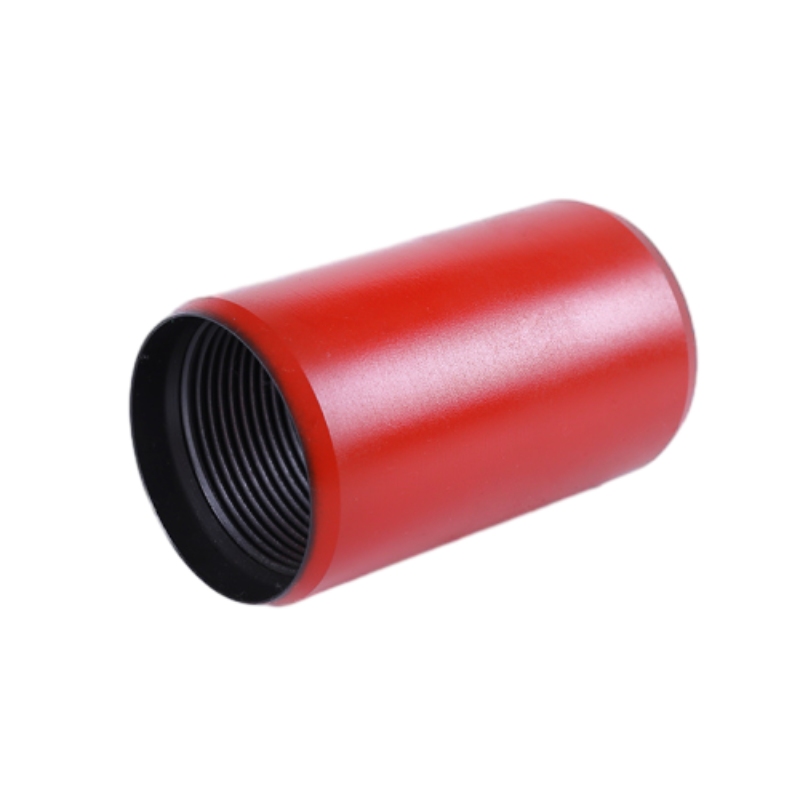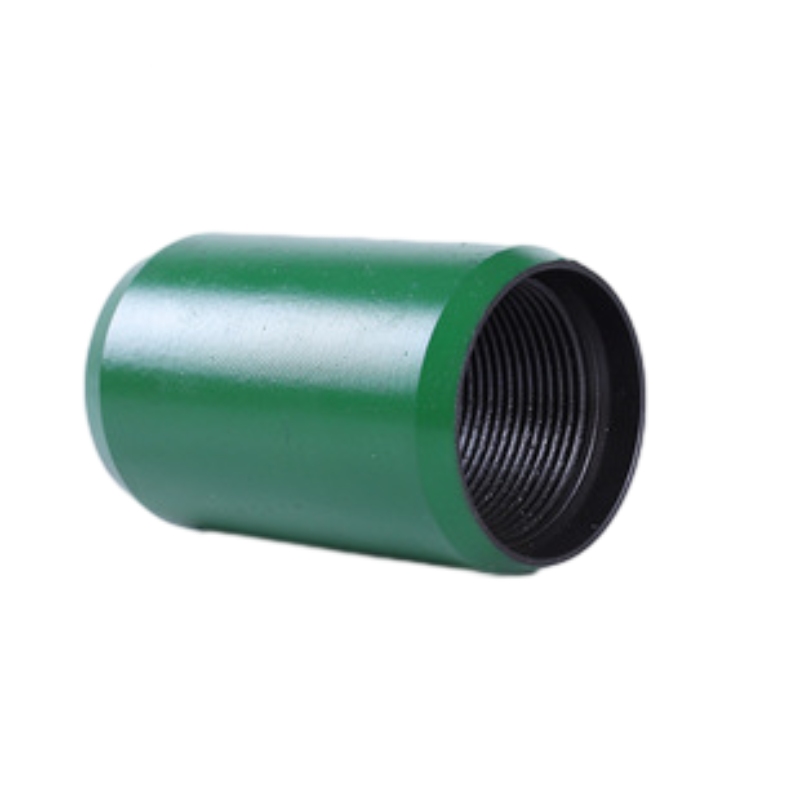Durable Steel Tubing Couplings | Pipe & Hose Connectors
The Indispensable Role of Tubing Couplings in Modern Industrial Systems
In the intricate architecture of industrial fluid and gas transfer systems, the integrity and efficiency of connections are paramount. At the heart of this critical infrastructure lies the tubing coupling, a fundamental component engineered to provide robust, leak-proof, and durable links between various sections of tubing. These essential devices are not merely connectors; they are meticulously designed components that withstand extreme pressures, temperatures, and corrosive environments, ensuring uninterrupted flow and operational safety across diverse sectors. The global industrial landscape is witnessing an increasing demand for high-performance couplings driven by advancements in materials science, precision manufacturing, and the stringent requirements of modern applications, from deep-sea oil extraction to semiconductor fabrication. Key market trends indicate a shift towards smarter, more resilient, and easily maintainable connection solutions, emphasizing quick-connect functionalities and enhanced material compatibility to extend service life and reduce downtime. The critical role of these couplings extends beyond merely joining pipes; they are instrumental in preventing hazardous leaks, maintaining system pressure, and facilitating complex network configurations, thereby directly impacting energy efficiency and environmental compliance. Understanding the nuanced engineering behind each type of connection, including specialized designs like the vacuum hose coupling for sensitive applications, or robust steel pipe coupling variants for heavy-duty industrial pipelines, is crucial for optimizing system performance and ensuring long-term reliability. Our commitment lies in delivering solutions that integrate seamlessly into complex operational frameworks, providing unparalleled performance and contributing significantly to the operational integrity of high-stakes industrial processes.
Precision Manufacturing: Crafting Superior Tubing Couplings
The production of a high-quality tubing coupling is a sophisticated process, blending advanced metallurgy with precision engineering. The journey begins with the careful selection of raw materials, predominantly high-grade stainless steel (e.g., AISI 304, 316L, Duplex 2205) for superior corrosion resistance and strength, or robust carbon steel for general industrial applications requiring high tensile strength. Our manufacturing excellence leverages diverse techniques: for critical components requiring exceptional strength and fatigue resistance, hot or cold forging is employed, consolidating material grain structure and eliminating internal defects. This is often followed by state-of-the-art CNC machining, which carves complex geometries and precise thread patterns with micron-level accuracy, ensuring perfect fit and seal. For larger diameter or custom steel couplings for pipe, specialized casting processes might be utilized, followed by rigorous heat treatment to optimize mechanical properties and stress relief. Throughout the entire manufacturing chain, stringent quality control measures are integrated. Each batch undergoes non-destructive testing (NDT) such as ultrasonic testing or magnetic particle inspection to detect subsurface flaws. Surface finish and dimensional tolerances are verified using advanced optical and tactile measurement systems. Furthermore, products are subjected to hydrostatic pressure tests, adhering to international standards like ISO 9001:2015 and API Spec 5CT, guaranteeing their integrity under specified operating conditions. This meticulous approach ensures that every steel coupling delivered meets the highest benchmarks for reliability, offering an extended service life and superior performance in demanding sectors like petrochemical, oil & gas exploration, metallurgy, and water treatment, ultimately contributing to significant energy savings through minimized leakage and enhanced system efficiency.

Technical Specifications and Performance Metrics for Tubing Couplings
Selecting the appropriate tubing coupling demands a thorough understanding of its technical specifications and performance characteristics, which directly dictate its suitability for specific industrial applications. Key parameters include nominal pipe size (NPS) and outside diameter (OD), defined by standards like ANSI B36.10, ensuring compatibility with existing pipeline systems. Pressure ratings, typically expressed in PSI (pounds per square inch) or PN (nominal pressure in bar), are critical indicators of a coupling's ability to withstand internal fluid pressure; for example, high-pressure hydraulic systems often require couplings rated for thousands of PSI, while vacuum hose coupling variants are designed for sub-atmospheric pressure integrity. Temperature resistance, spanning cryogenic to extreme high-heat environments, is determined by the material's thermal properties and the integrity of sealing elements. Thread types, such as NPT (National Pipe Taper), BSPP (British Standard Parallel Pipe), or proprietary API threads for oilfield applications, are crucial for secure, leak-proof connections. Material composition, like AISI 316L stainless steel, offers superior resistance to corrosive chemicals and seawater, while specialized alloys are chosen for resistance to H2S or CO2 in sour gas environments. Adherence to international standards such as ISO 7-1 (for pipe threads) and ANSI/ASME B16.5 (for flanges) ensures interchangeability and reliability across global operations. The design of these couplings incorporates advanced sealing technologies, including O-rings, metallic seals, or specialized elastomers, selected based on fluid compatibility and temperature profiles, all contributing to the system's overall efficiency and safety. Our expertise lies in matching these precise technical specifications with your unique operational demands, ensuring optimal performance and compliance.
Diverse Applications and Strategic Advantages of Tubing Couplings
The versatility and robustness of the tubing coupling make it an indispensable component across a vast spectrum of industrial applications, each benefiting from its specific design attributes. In the oil and gas sector, particularly within upstream drilling and production, high-pressure steel couplings for pipe are vital for connecting downhole tubulars and surface manifold systems, ensuring the safe transport of crude oil and natural gas under extreme pressures and temperatures. The petrochemical industry relies on corrosion-resistant steel coupling solutions for transporting aggressive chemicals, where material compatibility and leak-proof integrity are paramount to prevent environmental hazards and ensure operational safety. Furthermore, in municipal water supply and wastewater treatment plants, resilient couplings ensure the secure connection of pipelines, preventing contamination and minimizing water loss, which directly translates into energy savings by reducing pump loads. Even in specialized environments like semiconductor manufacturing, precision-engineered vacuum hose coupling designs are essential for maintaining ultra-clean, contamination-free vacuum lines. The advantages offered by high-quality couplings are manifold: they significantly enhance operational safety by preventing catastrophic failures due to leaks or disconnections; they contribute to substantial cost savings by minimizing downtime, reducing material loss, and extending the service life of entire pipeline systems; and they improve system efficiency by maintaining optimal flow rates and pressure integrity. Choosing the right tubing coupling for each unique application is a strategic decision that impacts the long-term reliability and economic viability of critical industrial infrastructure, underscoring the importance of expert selection and certified product quality.

Manufacturer Comparison and Tailored Coupling Solutions
When sourcing tubing coupling solutions, B2B decision-makers must consider several factors beyond just immediate price points. A thorough manufacturer comparison should prioritize a proven track record, demonstrated through years of reliable service and a robust portfolio of successful projects. Key indicators of a reputable manufacturer include adherence to international quality management systems like ISO 9001, consistent product certifications (e.g., API monogram for oilfield equipment, PED for pressure equipment in Europe), and a commitment to continuous R&D, ensuring their offerings are at the forefront of material science and engineering innovation. Leading manufacturers differentiate themselves by providing comprehensive support, from initial consultation and design assistance to after-sales service and technical training. Furthermore, the ability to offer customized steel pipe coupling solutions is often a decisive factor. While standard steel couplings for pipe meet a wide range of requirements, specific projects in extreme environments—such as high-temperature geothermal wells, highly corrosive chemical processing plants, or ultra-deep subsea installations—demand bespoke designs. This might involve custom dimensions, specialized threading, unique material combinations (e.g., nickel alloys for specific corrosive media), or coatings for enhanced wear and corrosion resistance. A flexible manufacturer capable of rapid prototyping, precision machining, and rigorous testing of custom tubing coupling variants provides invaluable strategic advantage, allowing for optimal system integration and performance where off-the-shelf solutions simply cannot suffice. Our internal processes, from CAD modeling to advanced metallurgical analysis, ensure that custom solutions maintain the same high standards of performance and reliability as our standard product lines, delivering precisely what your unique application demands.
Ensuring Trust: FAQs, Delivery, and Warranty Commitments
Building trust with our B2B clients is foundational to our operations, especially when it comes to critical components like the tubing coupling. We understand that decision-makers require clarity and confidence in their supply chain. Our commitment to transparency begins with comprehensive customer support, ensuring all technical and commercial inquiries are addressed promptly and accurately. For typical orders, our streamlined production and logistics capabilities enable delivery within 4-6 weeks for standard steel coupling products, with expedited options available for urgent requirements, while custom steel pipe coupling solutions may have a slightly longer lead time dependent on complexity. We proactively communicate delivery schedules and provide tracking information to ensure seamless project planning.
Frequently Asked Questions (FAQs)
-
Q: What inspection standards do your tubing couplings adhere to?
A: Our tubing coupling products undergo rigorous quality control, adhering to international standards such as ISO 9001 for quality management, API Spec 5CT for casing and tubing, ANSI/ASME B16.11 for forged fittings, and specific hydrostatic testing protocols to ensure pressure integrity. We can also comply with customer-specific inspection requirements. -
Q: Can you provide custom vacuum hose coupling solutions for unique applications?
A: Absolutely. Our engineering team specializes in developing custom tubing coupling designs. This includes adapting to non-standard dimensions, specific material requirements for extreme environments (e.g., highly corrosive or cryogenic), and specialized connection types. We work closely with clients from concept to final product to meet precise performance criteria. -
Q: What is your warranty policy for tubing couplings?
A: We stand behind the quality of our products with a comprehensive warranty against manufacturing defects and material failures under normal operating conditions. The specific terms and duration vary by product type and application, typically ranging from 12 to 24 months from the date of installation or shipment. Full warranty details are provided with each quotation and order confirmation.
Our dedicated customer support team is available to assist with technical specifications, order status, and any after-sales queries, ensuring a smooth and reliable experience. We are committed to fostering long-term partnerships based on product excellence, reliable service, and mutual trust, making us a preferred supplier for critical tubing coupling solutions.
Authoritative References
- American Petroleum Institute (API) Specification 5CT: Specification for Casing and Tubing.
- International Organization for Standardization (ISO) 9001: Quality Management Systems – Requirements.
- American Society of Mechanical Engineers (ASME) B16.11: Forged Fittings, Socket-Welding and Threaded.
- Metals Industry Specification (MSS) Standard Practice SP-83: Class 3000 and 6000 Steel Pipe Unions, Socket-Welding and Threaded.
- National Association of Corrosion Engineers (NACE) MR0175/ISO 15156: Petroleum and natural gas industries—Materials for use in H2S-containing environments in oil and gas production.
-
Tubing Crossover - API Compatible, Custom Sizes, In StockNewsNov.10,2025
-
Tubing Coupling | High-Strength, Leak-Proof Steel CouplingsNewsNov.10,2025
-
Wholesale API Threading Casing Coupling | API 5CT, Fast ShipNewsNov.10,2025
-
Pup Joint Supplier | API Certified, Custom, Quick ShipNewsNov.10,2025
-
Pup Joint Manufacturers | Precision Machined, Fast DeliveryNewsNov.10,2025
-
Tubing Coupling | Precision Steel, Leak-Proof, Fast DeliveryNewsNov.03,2025







